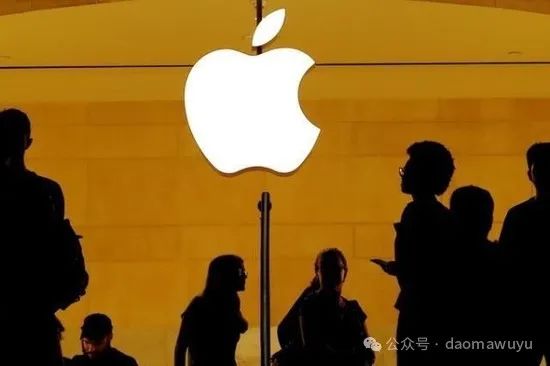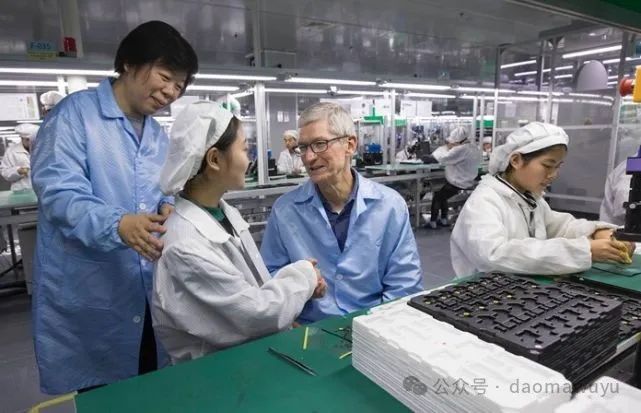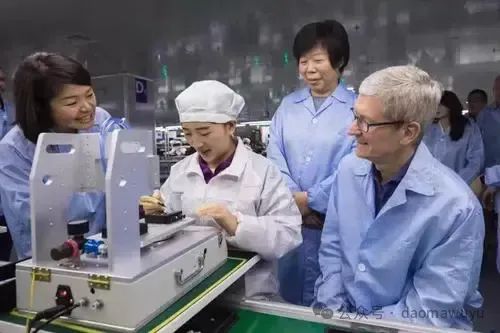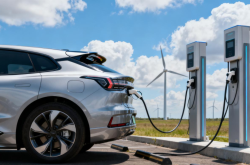After all the twists and turns, does Apple still trust China-made products?
![]() 08/19 2024
08/19 2024
![]() 623
623

At one time, Apple subtly requested Foxconn to withdraw iPhone manufacturing from the Chinese market. As a result, we saw Foxconn's presence in Vietnam, India, and other markets, with news of new factories being built and investments in iPhone production. Tim Cook also timely visited these countries to promote Apple's products and philosophy. The aim was to seek government support, explore more opportunities for iPhone manufacturing, and capitalize on India's vast population base and low labor costs. Apple aimed to diversify its supply chain, reducing over-reliance on the Chinese market, especially the Chinese supply chain.

1. In times of crisis, China's manufacturing market remains essential
After several years of development, Foxconn has consistently adjusted its expansion plans in line with Apple's demands, yet it seems to falter at crucial moments. When Apple's demands were urgent, Foxconn ultimately relied on China's domestic manufacturing market rather than its newly established markets with seemingly lower labor costs.
This underscores that Apple's latest iPhone models ultimately rely on China's domestic manufacturing market, rather than emerging markets. It also suggests that the quality of products from emerging manufacturing markets falls short of Apple's standards. If yield rates are low, Apple would face greater scrutiny. Thus, choosing more reliable manufacturers is paramount.
This might explain the urgency behind Foxconn's recent recruitment drives in Zhengzhou to meet Apple's production demands. Reports suggest that Apple's manufacturing capacity is returning to China, with Foxconn workers earning over 7,000 yuan per month to ramp up production of the latest iPhone 16 series. Meanwhile, rumors suggest limited changes in the iPhone 16 series compared to its predecessor, and Apple Intelligence may not be integrated into the new models.

2. Will the iPhone 16 series be a hit?
If product performance enhancements are minimal and AI technology is lacking, what will attract users? If the new models fail to meet expectations, why ramp up production? This is a market speculation. Apple hopes the iPhone 16 series will sustain demand from the previous generation, allowing it to stockpile and capture more market share early on. If iOS later supports Apple Intelligence, demand could surge.
Thus, Apple daren't slack in initial stockpiling, ensuring a smooth rollout of the iPhone 16 series. Swift delivery meets consumer expectations, aiding first-wave shipments. Foxconn's increased production is thus logical.
Before Apple's autumn event, the market scrutinizes supply chain and manufacturing changes to forecast trends. This year, media continues to focus on manufacturing pressures and hiring demands among Apple's contract manufacturers. Luxshare Precision's Kunshan facility raised its signing bonus by 200 yuan to 5,500 yuan, indicating the final stretch of iPhone 16 mass production. Labor demand reflects market demand and product improvement expectations.

3. Factories raise hourly wages to attract workers
Foxconn's wage hikes have garnered attention. Reports claim Foxconn Zhengzhou recruited 50,000 workers in two weeks, with hourly wages reaching 25.5 yuan in Zhengzhou and 28 yuan in Hangzhou. Direct hires noted over 100 daily applicants, applying online before on-site interviews. This reflects a challenging job market, mirroring saturation in courier, delivery, and ride-hailing sectors.
Foxconn's hiring surge indicates Apple's production returning to China. This is attributed to low yield rates of Indian-assembled iPhone 15s, prompting Cook to restructure China's supply chain. Now, Foxconn, Luxshare Precision, and BYD join iPhone 16 production, reaffirming China's manufacturing prowess and high yield rates.
Interviewees revealed Foxconn Chengdu's pay structure of base salary plus hourly allowance (2300-2600 yuan base, 9 yuan/hour allowance from August, working 10-12 hours/day, six days a week). A worker earning 2340 yuan from 26 days at 10 hours/day, plus base salary, overtime pay, night shift allowance, signing bonus, and heat allowance, could earn 6500-7000 yuan/month.
To meet Apple's production needs, Foxconn Zhengzhou advertised its 'highest annual salary.' Since August, overtime has increased, with 10-hour workdays becoming the norm. Zhengzhou offers a rebate model (up to 7500 yuan after 90 days) or hourly rates (up to 25.5 yuan/hour). Hangzhou's highest hourly rate is 28 yuan due to regional differences. Production focuses on iPhone 16, with new hires assigned to QC, packaging, or assembly randomly.
Indeed, Southeast Asia and India offer lower labor costs. However, inadequate infrastructure, immature production lines, poor hygiene, power outages due to heat, and other issues affect Apple's production capacity, quality, and brand reputation. Analysts believe the return of iPhone 16 orders to China was inevitable. Over 95% of Apple products are still manufactured in China. In times of crisis, China's manufacturing remains the most reliable.





